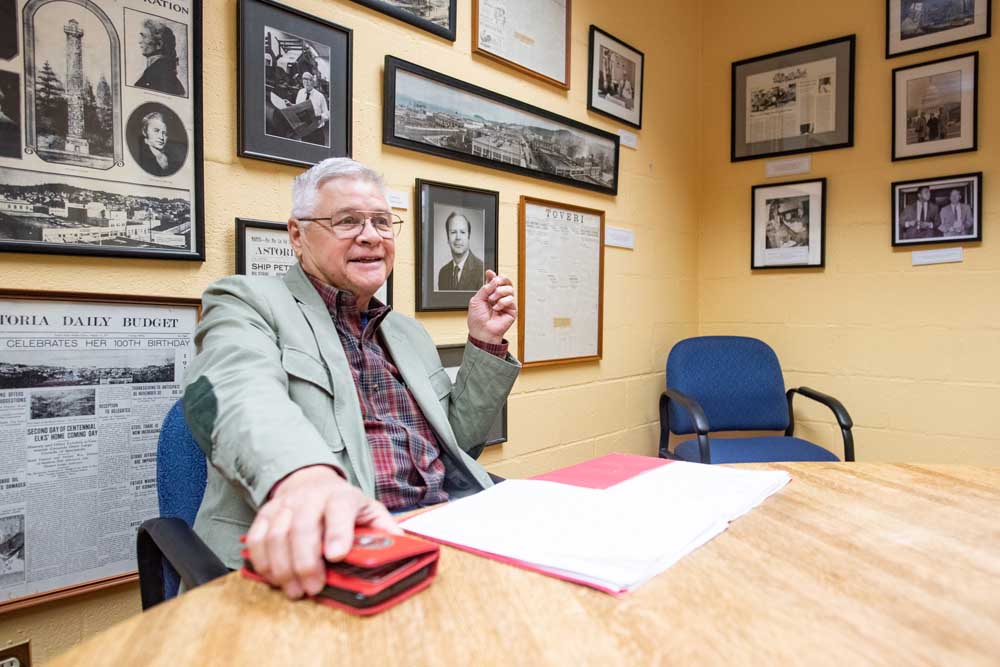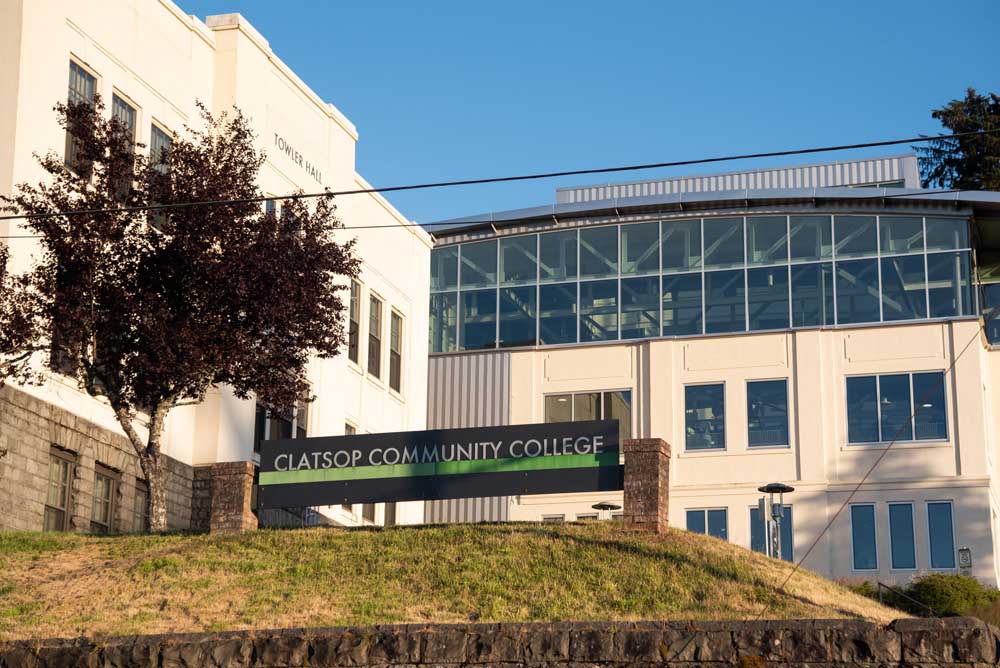Behind the News: ‘Those guys shouldn’t have been cops’
Published 12:30 am Saturday, June 13, 2020

- Ron Louie, a former Astoria police chief, teaches criminal justice at Portland State University and Portland Community College.
The message might not fit neatly on a protest sign, but Ron Louie, a former Astoria police chief, believes mandatory accreditation has the potential to make the biggest difference in law enforcement.
Trending
Accreditation could be the framework to help ensure reforms to discourage police misconduct actually happen.
Louie, who teaches criminal justice at Portland State University and Portland Community College, signed on to the Law Enforcement Action Partnership’s recommendations to transform policing in the wake of the killing of George Floyd by Minneapolis police.
The ideas for Congress include a national public database on officer misconduct, requirements to collect data on police stops and the use of force, a national standard for the use of deadly force and an end to qualified immunity that prevents police from being held legally accountable when they break the law.
Trending
“One of the biggest problems that we have is we don’t test for emotional intelligence. We don’t test for adversity quotients,” said Louie, a former hostage negotiator who wrote the book “Tactical Communication in Crisis Incidents.” “And the reason I’m telling you this, is if you take a look at all the instances of misuse of force, those guys shouldn’t have been cops. They lack that ability.
“From Michael Brown (in Ferguson, Missouri) to Rodney King (in Los Angeles) to what we’re seeing now with George Floyd, if you really had to say what’s the biggest impact in the future, stop having those people wearing guns.”
Louie, a Chinese American who served in the U.S. Marine Corps, was the police chief in Astoria from 1987 until 1992 before a long stint as the Hillsboro police chief. He and his wife have homes in Hillsboro and Astoria.
In an interview, Louie talked about the movement to defund police, the protests across America and the pressure on police officers to respond to social issues.
Q: Some of the protesters nationally are calling on cities to defund police. Your thoughts?
A: It runs the gamut. It runs from the extreme — ‘We don’t want any police;’ ‘We want our neighbors to respond to calls’ — I mean, I’ve even heard that.
But I think the City Council president of Minneapolis — she was interviewed over the weekend and I listened to her — she backed off on that by saying, ‘We have the policing over here, but we need to take some of those resources and put them over here and invest in mental health, invest in housing, in care. All the things over here.’
Unfortunately, defunding has become a political issue … What’s happening is defunding has become a political catchphrase where they’re taking from the police and moving it somewhere else. Do you know what I mean? They shouldn’t be doing that.
Have we defunded police in Oregon? Yeah, we have. Guess where? Cornelius.
They had a lot of problems with the police department internally. City of Cornelius went out of (the police) business and just said, listen, we’re going to contract with Washington County, but these are the measures that we want to look at as you come into our town and police us.
So Cornelius, Oregon, is now run by Washington County. The department was defunded, so to speak. But it wasn’t because the money is still going down to Washington County.
Q: Are you surprised to see protests in predominantly white cities like Astoria with no recent history of police misconduct?
A: Someone that looks at strategic planning will look at what are triggers, what are benchmarks and what are watersheds.
We didn’t see that from Rodney King when I was a cop. We didn’t see that with Michael Brown. We didn’t even see that with James Chasse, who was mentally ill (and killed by Portland law enforcement in 2006). But we did see the federal government, by the way, come in, look at Portland, and say, ‘You mistreat. You’re now in a consent decree.’ So we did see that.
But, now, I think that we see police officers — as well as nonimpacted communities, middle class, white middle class; not just white liberals and guilt liberals — you’ve got those, but you’ve got people over here now protesting, saying, ‘Oh, my God. We must make a change.’
So I’m surprised, but pleased, to see that.
Q: Over the past few years, we have had two police shootings in Seaside that were ruled justified. There were no significant calls by government or the public for better training or more accountability. The default position was to support the police. Do you think that’s going to change going forward in those types of situations?
A: I think, going forward, you’re going to see a different kind of scrutiny. It may not necessarily end in any change in support.
But here’s my point — and this is part of the recommendations for transforming police of which I have been proposing for years — is you will see the investigation taken over on a state level, not on a local level.
And that’s one way to help build trust, by the way. This is fundamentally a trust issue, anyway …
The more that you see a more objective analysis, the more you are going to surface questionable use of force. And when you do that, people may be upset. But they also, at the same time, when they’re going to be angry, that’s going to go up. But you know, believe it or not, what quietly goes up? Believe it or not, trust.
Quietly, trust goes up. No one talks about it.
Q: We have heard from law enforcement that they often feel pressure to respond to social issues beyond their control, from alcohol and drug abuse to mental health to homelessness to racism. How do we fix that?
A: You have smart resources allocated to those areas specifically — substance abuse, homelessness, domestic violence, those issues.
You have smart resources focusing on that, such that you don’t end up with 911 over here …
Here’s the problem: Communities across America do not see harm reduction as their No. 1 goal. Some cities do, like in homelessness …
The more a city takes on harm reduction to its community, the less we will see police engaged in where they shouldn’t be. The more harm reduction here also means reducing the overrepresentation of minority youth in the criminal justice system.
Q: Do you fear we are going to make the job of a police officer impossible?
A: Right now, it’s getting close to that …
It’s going to be very, very difficult to do policing when everybody is on your shoulder. I retired in ’07. I got called back in 2013 to Hillsboro just to take a look at why the chief was moved out, why was the department demoralized … It was a huge difference being a chief then, or a cop, because now on a daily basis I had people screaming for my emails and how I did.
The answer is, it’s going to be very, very difficult to be a police officer because so much is being scrutinized. We have 700,000 cops and we have a handful doing horrible things, and all the 700,000 are now impacted.
So it’s getting very, very difficult. So I think you will sadly see good people, also, leave the force or not want to join. And those are the people I want on the force. I want assertive people, not aggressive people. I want people, again, that have really good, mindfulness-based quotients.
It may be hard to get them.








